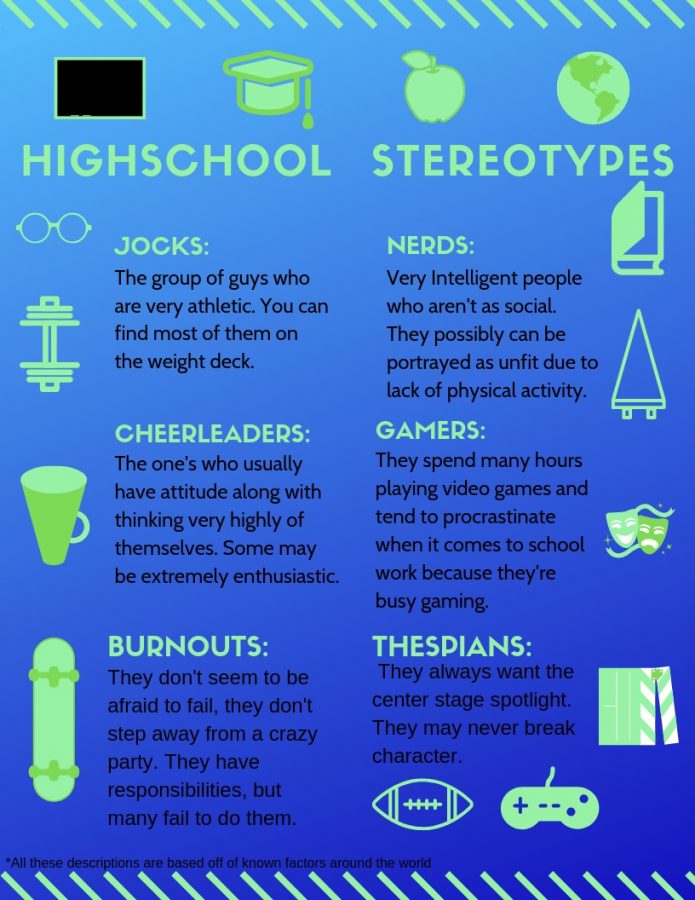ONLINE EXCLUSIVE: Social Status Isn’t a Science
Social classes exist in schools and in the workplace, but it only means something when people make it relevant.
More stories from Alexander Riedel
When society in the “real” world is compared to societies in school, they can be similar in more ways than most people would think. For example, in the “real” world, the workplace is organized by a ranking of authority. There is the boss, the untouchable individual who everyone follows, the employees, the middle men and even all the way down to interns. This ranking of authority can also be found around schools; there’s the stereotypical jocks, rich kids, thespians, burnouts and nerds.
At Antioch Community High School, there is much of the same. Everyone ranks themselves based off of a social scale. Some people put themselves on a pedestal, but most are very realistic within their assumptions and placements of themselves. For senior Carley Mager, she is well known throughout ACHS.
“I’ve been involved in different aspects of high school,” Mager said. “[I’m involved in] musicals and sports so I get to know a lot of people within the school.”
For others, their social ranking does not matter. They instead focus their energy on activities they enjoy. Senior Tyson Baker has advice for students who want to find their place in the societies in schools and eventually in the real world.
“I try not to look at it through other people’s viewpoints and instead look at it through my own,” Baker said. “I’m happy in the social circle that I’m in so I consider myself pretty high up there.”
School societies are all about how students interpret it. It is a push and pull concept. There is the stereotypical jocks and nerds, but they are unique in their own way. It cannot be assumed that each student can only fit into their social classes. There are some jocks who are in honors classes and there are smart kids who are athletic. Just because the social classes are not what many would assume, that doesn’t mean they don’t exist. According to a Twitter poll taken by students at ACHS, 80 percent of students that voted believe that social classes do exist in school.
A big contributor to the social classes and social status’ of students in high school are first impressions. When students first meet one another, they usually start a conversation and try to get to know each other. For some, the first impression means everything. It can show how outgoing one is and the attitude they carry. Everyone has their own way of making good first impressions, Mager and Baker commented on their first impression tactics.
“I am open about things and try to figure out who they are as a person,” Mager said.
Baker likes to add a bit of a more fun approach to his first encounter with new students.
“I usually give out a fun fact about me to make them feel comfortable,” Baker said.
Whether students consider themselves popular or not, there will always be misconceptions. Everyone knows one person in school that they find intimidating. This person can be intimidating for many reasons; while one might be intimidating because they look mature, another can be found with a negative tone making it hard for people to hold conversation. For Baker, he thinks that a lot of students are too afraid to get to know him or approach him in school. They see him as a threat and he wants everyone to know that that is far from the truth.
“My straight face intimidates people, I get told that a lot,” Baker said. “I’m not a scary person, I’m open to anyone.”
Senior Donovan Redd has been in the shadow for most of his time in high school, but he doesn’t care about popularity. What matters to Redd is making himself happy and making his friends happy.
“When I meet new people, I always just be myself and that’s all you can do,” Redd said.
Everyone in high school makes good and bad decisions. Whether students see themselves as popular or not, there will always be decisions they wish they could change. When asked about something they would change if they could go back to freshman year, Mager, Baker and Redd gave their thoughts.
“I would want to show people than I’m smarter than I look,” Mager said.
For Mager, she has one specific spot that she would go back and try to improve, where as Baker gave a more general approach to things.
“If I could start over I would try to make better choices with the people that I am so close with,” Baker said. “One bad decision can lead you down the wrong path.”
Redd believes putting himself out there more would have increased his opportunity to meet more students.
“I would get more involved in clubs and other friend groups,” Redd said.
No one can go back in time, they can only look ahead. Even though the ranking of people will never stop, one can always look to improve themselves on how they impact society. There’s not an exact science to high school rankings besides when it comes to grades. Even if one is labeled as “the jock,” it doesn’t mean they can’t be on the math team. A ranking is only valid if one lets it be valuable to them.

